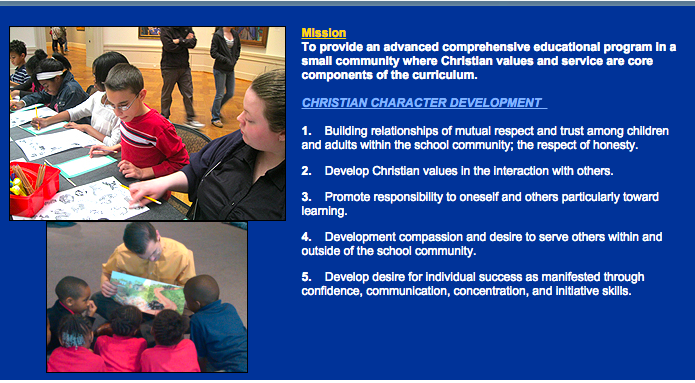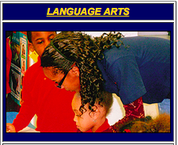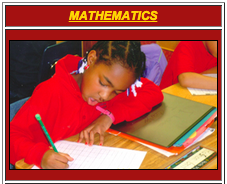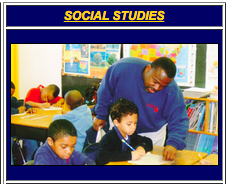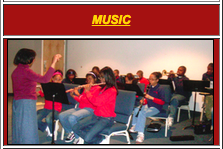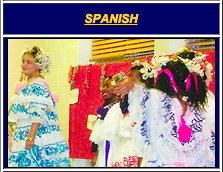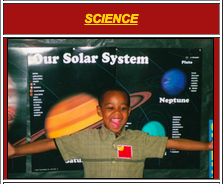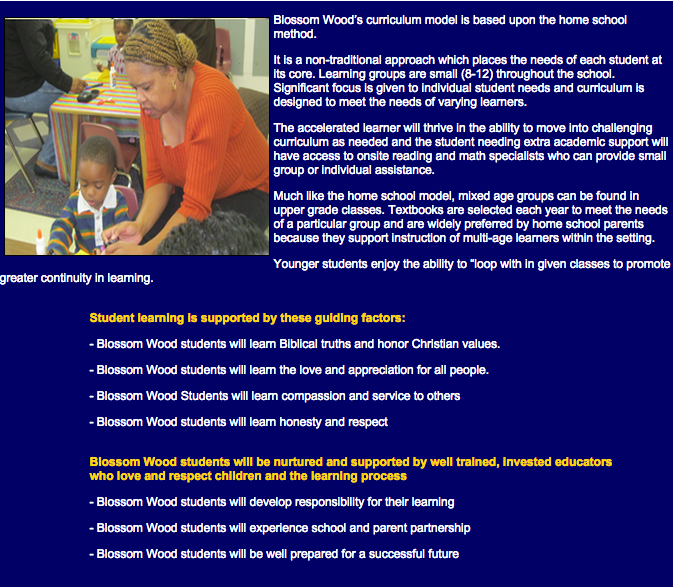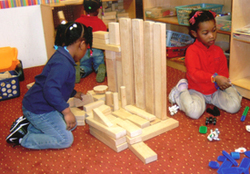
Preprimary through Kindergarten
Projects apply cognitive and expressive skills along with inventive abilities to the process of hypothesis, question, explore, expressPreprimary through Kindergarten projects i.e. show and tell, fire prevention exercises, art, insect collection, creative stories and may occur over a moment or for a prolonged period of time. They may occur outside or inside the classroom.
First through Sixth Grade
The learning cycle of inquiry of invention, expand or incorporate new skills and abilities. They may extend throughout subject areas to include building and design using dimensions, colors, math concepts, social studies, and expressive forms of writing, show and tell activities, and plays.
Projects apply cognitive and expressive skills along with inventive abilities to the process of hypothesis, question, explore, expressPreprimary through Kindergarten projects i.e. show and tell, fire prevention exercises, art, insect collection, creative stories and may occur over a moment or for a prolonged period of time. They may occur outside or inside the classroom.
First through Sixth Grade
The learning cycle of inquiry of invention, expand or incorporate new skills and abilities. They may extend throughout subject areas to include building and design using dimensions, colors, math concepts, social studies, and expressive forms of writing, show and tell activities, and plays.
Preprimary through Sixth Grade
Classroom computers with educational software. Projects include activities using the overhead projector, shadow images, and educational programs on the computer with enhance language, cognitive skills, and hand eye coordination.
The inclusion of reading materials include audio and video literature and age appropriate reading material that include emergent reading material, long and short novels, and literature.
ASSESSMENT
Preprimary and Kindergarten
Documentation of student work includes student work samples, photographs, observational anecdotes, homework, student portfolios, bi-annual conferences, and annual spring DAIL-R screening.
First through Sixth Grade
Weekly subject based tests, homework, photographs, work samples, student journal writing, progress reports, bi-annual conferences, and the Missouri Assessment Program (MAP) is given annually in April beginning in third grade.
Classroom computers with educational software. Projects include activities using the overhead projector, shadow images, and educational programs on the computer with enhance language, cognitive skills, and hand eye coordination.
The inclusion of reading materials include audio and video literature and age appropriate reading material that include emergent reading material, long and short novels, and literature.
ASSESSMENT
Preprimary and Kindergarten
Documentation of student work includes student work samples, photographs, observational anecdotes, homework, student portfolios, bi-annual conferences, and annual spring DAIL-R screening.
First through Sixth Grade
Weekly subject based tests, homework, photographs, work samples, student journal writing, progress reports, bi-annual conferences, and the Missouri Assessment Program (MAP) is given annually in April beginning in third grade.
|
Preprimary and Kindergarten
Vocabulary Development: (naming objects, use of positional words, sound/letter association) Structural and Phonetic Word Analysis: (handwriting, speech and language development, prediction, sequence storytelling, identify pictures with consonant sounds, reproduce shapes, letters, identification and differentiation of letters). Writing Skills: (printing upper/lower case letters left to right, correct spacing and pencil holding, write short stories, journal writing and illustration). Speaking: (verbal expression of feelings and needs to adults and peers, develops fantasy/pretend games, negotiation skills, short poetry, uses complete sentences, correct grammar, group discussions). Reading: (uses phonemic skills to produce words, demonstrates word attack skills, emergent reading texts, bible stories, demonstration of comprehension by relating, creative stories with puppets, reading aloud and silently). First through Sixth Grade Vocabulary Development: (use of phonics in decoding words, use of sounds and blends to pronounce words, word derivations, increased demonstration of ability to use vocabulary words in everyday communication). Writing Skills: (formation of manuscript and cursive letters, written complete sentences, punctuation, rough drafts, revision, final copy, presentation in story writing, letter writing, book reports, theme based writing, sentence dictation, word usage and mechanics). Speaking: (verbal expression of feelings to peers and adults, correct use of grammar, greeting visitors, poetry recitation, small group discussion, role playing/plays) Reading: (reading for enjoyment and discovery, reading in small groups, reading discussions, character analyzation, appreciation of imagery, style, and written purpose, discovery of literary themes and discussion of bible stories, chapter novels, plays, and poetry) Pre-primary through
Kindergarten An active learning approach to music and movement activities, introduction to simple rhythmic patterns instruments, rhythm and early music classical and contemporary music appreciation and performance. Kindergarten through Sixth Grade Basic music theory and introduction to music instruments will provide students with appreciation for classical and contemporary music. Emphasis placed on the study of musical periods and both classical and Christian music composers. Performances during the school year include morning devotions, special events, Christmas program, and Graduation. Students will learn basic music theory and participate in the following: Recorder Class Chorus Piano Class Suzuki Violin (Begins in Senior K) |
Preprimary through Kindergarten
Concepts: develop awareness of math in our world through numerical identification, counting, sorting, size, shape, quantity, and patterns, graphing, manipulatives, comparison, and classification. First Grade through Sixth Grade Concepts: develop mastery in basic number facts and use these facts to solve mathematical problems, develop mathematical vocabulary, and estimation develop mastery in basic number facts and use these facts to solve mathematical problems, develop mathematical vocabulary, estimation, and reasoning. Develops mastery in basic number facts and use these facts to solve mathematical problems, develop mathematical vocabulary, estimation, and reasoning. Skills: solves complex addition/ subtraction combinations, solves mixed mathematical combinations, knowledge of decimal place value, differentiates odd and even numbers, calculates elapsed timed, identifies fractions/parts of a whole, adds/subtracts fractions, measures in inches/ centimeters, makes predictions, measures length, width, perimeter, area, and temperature, identifies and establishes patterns, makes comparisons using various graphs, identifies points, lines and segments, multiplication of two and three digits/ columns, solves simple and long division, identifies and solves algebraic exponents, solves word problems, calculates money Pre-primary through Kindergarten
Concepts: Develop language through the awareness of Spanish culture. To acquire Spanish skills in speaking, listening, reading and writing. Skills: Experience Spanish through songs, games, literature and family traditions. Recite numbers, alphabets, and colors in Spanish. Recognize and understand familiar vocabulary in simple questions, phrases, and commands; give appropriate response; repeat, recognize, and imitate words and phrases used frequently. First through Sixth Grade Concepts: Develop language through the awareness of Spanish culture. To acquire Spanish skills in speaking, listening, reading, and writing. Skills: Greetings, introductions, time, calendar, weather, self and others, family, clothing transportation, school, home, jobs and occupations, leisure activities, daily activities, and food. Further skills include appreciation of Spanish culture, through history and geography. School celebrations of major Spanish holidays, production of performances presenting material in Spanish. With increased levels of understanding students listen to stories and answer questions, recognize and differentiate vowels and consonants, grammatical concepts in writing, singular and plural forms of words, possessive pronouns, tenses, answers to who, what, where, when, and how questions, written words and phrases using correct spelling, masculine and feminine adjective endings, simple written instructions. |
Pre-primary through Kindergarten
Concepts: to develop a deeper understanding of self, family, and community. To discover and appreciate other cultures and traditions. To gain knowledge of past and present and how to be a member of a community through negotiation, support, and friendship. Skills: cultural celebrations, knowledge of community workers, self discovery and awareness, my body, identify state and city on map, family names, identify USA on a globe, discovery of different types of waterways, Scholastic News supplements, kindergarten field trips, classroom honor codes (honesty, respect, friendship), community service projects within the school and local community. First through Sixth Grade Concepts: to develop a deeper understanding of self, community, and the world around us. To appreciate other cultures and their contributions. To appreciate our country as a part of a larger world. To develop positive citizenship through, negotiation, support and friendship. Skills: Identification of U.S. states, capitals, lakes, oceans, continents, use of a compass, reads newspaper for local and national news. Scholastic News supplements, state and local government, the electoral process, world geography, habitats and land forms, community service projects within the school and local community. Field trips, Annual travel expedition to a selected city in the U.S.A. Pre-Primary through Kindergarten
Concepts: Seasons, Nature, Farm and Zoo Animals, Healthy Bodies, Liquids, Textures, the Five Senses, Insects Skills: Use of water play, light, nature walks, knowledge of the food groups, insects families, exploration with magnifiers, sink and float objects First through Sixth Grade Concepts: Knowledge of the scientific method, through selected science units that include, life science, physical science, earth science, plants, health, nutrition and environment. Skills: application of reasoning, prediction, experiment, observation, conclusion, use of magnifiers, microscopes, development of projects using the telescope, scales, rulers, applying the use of the metric system, thermometers, and other scientific apparatus. Students maintain a school flower and herb garden. |
